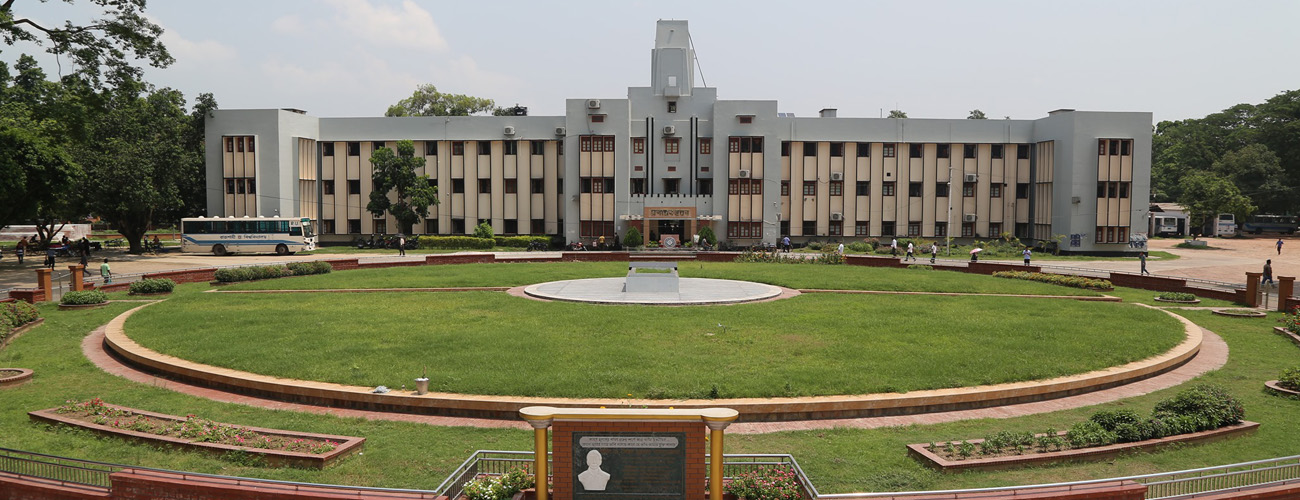Mission
Department of Electrical & Electronic Engineering at the University of Rajshahi focuses its attention to serve the global interest and needs. The mission of the department is-
- To provide up-to-date teaching and state-of-the-art research facility to hone the students’ professional skills and best-in-class expertise of the respective discipline;
- To gather the highest efficiency in science and technology so as to equip students to analyze, synthesize and execute projects in diverse areas;
- To inspire students for taking part in the modern-day innovation and entrepreneurship;
- To undertake sponsored research projects and provide consultancy services in industries and socially relevant issues.
Vision
Our Vision is-
- To become a center of distinction in providing highest quality education in the field of science, engineering and technology;
- To become a hub of excellence in scientific innovation and cutting-edge technology;
- To improve the standard of living of every citizen by technical means.
Objectives
The Objectives of the EEE program at the University of Rajshahi are-
- To prepare graduates with the skills necessary to enter careers in the design, application, installation, manufacturing, operation and/or maintenance of electrical/electronic(s) systems;
- To train students of this department for development and implementation of different electrical/electronic(s) systems;
- To produce Engineers who are committed to sustainable development of electrical/electronic(s) industries for the betterment of the society and nation.
Intended Outcomes of EEE Program
After completion of the four years bachelor degree students are expected to have-
- the knowledge required to apply circuit analysis and design, computer programming, associated software, analog and digital electronics, and microcomputers, and engineering standards to the building, testing, operation, and maintenance of electrical/electronic(s) systems;
- the competence for application of natural sciences and mathematics at or above the level of algebra and trigonometry to the building, testing, operation, and maintenance of electrical/electronic systems.
- the ability to analyze, design, and implement one or more of the following: control systems, instrumentation systems, communications systems, computer systems, or power systems;
- the ability to apply project management techniques to electrical/electronic(s) systems;
- the ability to utilize differential and integral calculus, as a minimum, to characterize the performance of electrical/electronic systems;
- an ability to select and apply the knowledge, techniques, skills, and modern tools of the discipline to broadly-defined engineering technology activities;
- an ability to conduct standard tests and measurements; to conduct, analyze, and interpret experiments; and to apply experimental results to improve processes;
- an ability to design systems, components, or processes for broadly-defined engineering technology problems appropriate to program educational objectives;
- an ability to function effectively as a member or leader on a technical team;
- an ability to identify, analyze, and solve broadly-defined engineering technology problems;
- an ability to apply written, oral, and graphical communication in both technical and non-technical environments; and an ability to identify and use appropriate technical literature;
- an understanding of the need for and an ability to engage in self-directed continuing professional development;
- an understanding of and a commitment to address professional and ethical responsibilities including a respect for diversity;
- a knowledge of the impact of engineering technology solutions in a societal and global context; and
- a commitment to quality, timeliness, and continuous improvement.

